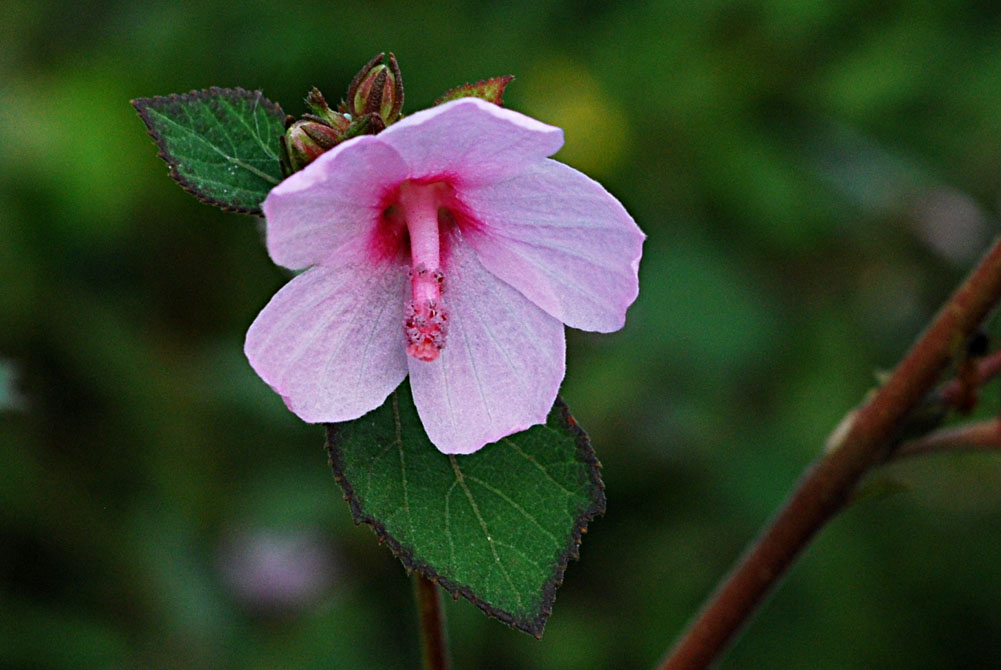Urena lobata
| Urena lobata | |
|---|---|

| |
| Photo by Wayne Matchett, SpaceCoastWildflowers.com | |
| Scientific classification | |
| Kingdom: | Plantae |
| Division: | Magnoliophyta - Flowering plants |
| Class: | Magnoliopsida – Dicotyledons |
| Order: | Malvales |
| Family: | Malvaceae |
| Genus: | Urena |
| Species: | U. lobata |
| Binomial name | |
| Urena lobata L. | |

| |
| Natural range of Urena lobata from USDA NRCS Plants Database. | |
Common name: Caesarweed
Contents
Taxonomic notes
Description
Distribution
Ecology
U. lobata has been found in slash pine forests, live oak woodland, swamp shores, and along lake shores.[1] It is also found in disturbed areas including along roadsides, waste areas along canal banks, wet swales between highways and pine flatwoods.[1]
Phenology
U. lobata has been observed flowering in January and May to December.[2]
Pollination
The following Hymenoptera families and species were observed visiting flowers of Urena lobata at Archbold Biological Station:[3]
Halictidae: Agapostemon splendens, Halictus poeyi
Megachilidae: Dianthidium floridiense
Conservation and management
Cultivation and restoration
Photo Gallery
References and notes
Deyrup, M.A. and N.D. 2015. Database of observations of Hymenoptera visitations to flowers of plants on Archbold Biological Station, Florida, USA.
- ↑ 1.0 1.1 Florida State University Herbarium Database. URL: http://herbarium.bio.fsu.edu. Last accessed: May 2021. Collectors: George R., Cooley, R. J. Eaton, Robert K. Godfrey, Robert Kral, O. Lakela, John Morrill, D. Wise, and Jean W. Wooten. States and counties: Florida: Collier, Indian River, Osceola, Polk, Putnam, and St Johns.
- ↑ Nelson, G. PanFlora: Plant data for the eastern United States with emphasis on the Southeastern Coastal Plains, Florida, and the Florida Panhandle. www.gilnelson.com/PanFlora/ Accessed: 14 DEC 2016
- ↑ Deyrup, M.A. 2015. Database of observations of Hymenoptera visitations to flowering plants on Archbold Biological Station, Florida, USA.